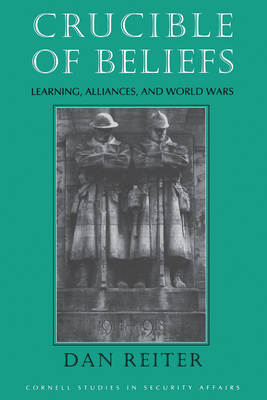Crucible of Beliefs: Learning, Alliances, and World Wars

Crucible of Beliefs: Learning, Alliances, and World Wars
How do foreign policymakers learn from history? When do states enter alliances? Why have some small powers chosen to enter alliances whereas others have stayed neutral? In Crucible of Beliefs, Dan Reiter uses work in social psychology and organization theory to build a formative-events model of learning in international politics. History does inform the decisions of policymakers, he suggests, but it is history of a specific sort, based on firsthand experience in major events such as wars.
Tested against balance-of-threat theory, the leading realist explanation of alliance behavior, Reiter's formative-events model of learning emerges as a far better predictor of states' decisions. Crucible of Beliefs shows that, contrary to balance-of-threat theory, state leaders ignore the level of international threat and focus instead on avoiding past mistakes and repeating past successes. A serious blow to realism, these findings demonstrate that to understand the dynamics of world politics, it is essential to know how leaders learn from history.
PRP: 206.91 Lei
Acesta este Pretul Recomandat de Producator. Pretul de vanzare al produsului este afisat mai jos.
186.22Lei
186.22Lei
206.91 LeiLivrare in 2-4 saptamani
Descrierea produsului
How do foreign policymakers learn from history? When do states enter alliances? Why have some small powers chosen to enter alliances whereas others have stayed neutral? In Crucible of Beliefs, Dan Reiter uses work in social psychology and organization theory to build a formative-events model of learning in international politics. History does inform the decisions of policymakers, he suggests, but it is history of a specific sort, based on firsthand experience in major events such as wars.
Tested against balance-of-threat theory, the leading realist explanation of alliance behavior, Reiter's formative-events model of learning emerges as a far better predictor of states' decisions. Crucible of Beliefs shows that, contrary to balance-of-threat theory, state leaders ignore the level of international threat and focus instead on avoiding past mistakes and repeating past successes. A serious blow to realism, these findings demonstrate that to understand the dynamics of world politics, it is essential to know how leaders learn from history.
Detaliile produsului









